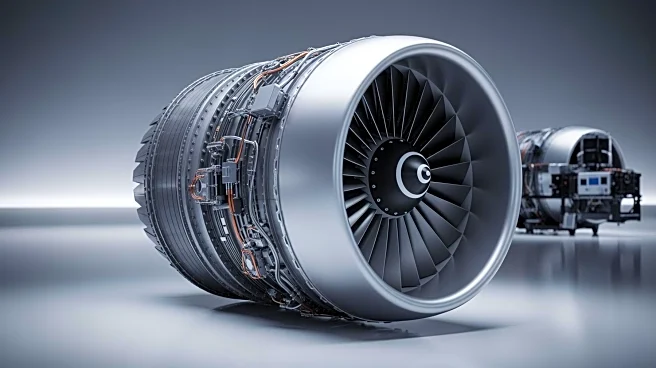What's Happening?
Honeywell Aerospace Technologies has announced enhancements to its Maintenance Service Plan (MSP) for business aviation. The MSP offers flexible maintenance solutions tailored to various aircraft components,
including avionics, mechanical components, propulsion, and auxiliary power units. This plan allows customers to select coverage options that best suit their needs, whether for individual components or comprehensive coverage. Honeywell's MSP aims to protect investments and increase aircraft value by using genuine Honeywell parts. The company is a global leader in aerospace products and services, providing solutions that enhance fuel efficiency, flight punctuality, and safety in the skies.
Why It's Important?
The expansion of Honeywell's MSP is significant for the business aviation sector, as it provides operators with customizable maintenance options that can lead to cost savings and improved aircraft reliability. By offering genuine parts and flexible coverage, Honeywell helps operators maintain high standards of safety and performance, which is crucial in the competitive aviation industry. This development also underscores Honeywell's commitment to innovation and customer satisfaction, potentially strengthening its market position and fostering long-term relationships with clients.
What's Next?
Honeywell Aerospace is likely to continue refining its MSP offerings to meet evolving customer needs and industry standards. As the aviation industry faces challenges such as fluctuating fuel prices and regulatory changes, Honeywell's adaptable maintenance solutions could become increasingly valuable. The company may also explore partnerships or collaborations to further enhance its service offerings and expand its customer base.
Beyond the Headlines
The MSP expansion reflects broader trends in the aerospace industry, where companies are focusing on sustainability and efficiency. Honeywell's emphasis on genuine parts and flexible maintenance aligns with efforts to reduce environmental impact and operational costs. This move could influence other industry players to adopt similar strategies, promoting a shift towards more sustainable aviation practices.








